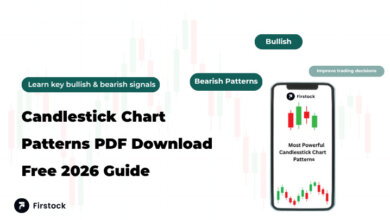How to Avoid Procrastination in Online Learning

Online learning has become a dominant mode of education, offering flexibility and convenience to students around the world. On one hand, its advantages are hard to underestimate, but on the other, there is one grave disappointment, that still meets the learners, and this is procrastination. The freedom of choosing when and as quick or as slow as you wish it very well may be a ticket to procrastination and failure to concentrate.
Many students, overwhelmed by tasks or simply unmotivated, find themselves searching for shortcuts like “take my class online” instead of engaging directly with their coursework. In order to study effectively in the online environment, it is preferable to know what causes procrastination and what is the most effective way to overcome it.
For many students, the idea of someone else to take my online class for me may seem tempting, especially during stressful academic periods. However, this strategy of resorting to these solutions is proving to be a quick-fix solution, and not much substantive knowledge and sustainable skills are being learned (BAW, 2022).
Understanding Procrastination in Online Learning
The online learning environment is rich with resources, tools, and opportunities, but it also lacks the structure and accountability found in traditional classrooms. There is a lack of face-to-face communication, there is no physical reminder of the upcoming deadlines and in most cases, there is limited peer interaction. This change of locale may make the students feel isolated and as having lost touch with their educational aspirations. Many students tend to delay the learning process to the last minute because there are no daily schedules or live lectures. This behavior is exacerbated by digital distractions, i.e., social media, streaming services, and mobile games, all of which are at a single click.
The Relationship Between Students and Procrastination
Students and procrastination have long had a complicated relationship. Nevertheless, the issue of procrastination is even more horrible in the online environment. No classroom situation creates a desperate need to deliver, and hence any lack of celerity can be more easily excused. I shall do it later is a very widespread expression and it is easy to spend several hours or even days being unproductive. Another kind of fear that makes people procrastinate is the fear of the second kind; the fear of failing, of not getting the material, or the fear of not being up to expectations. This may extend to causing students to refuse to work altogether.
Establish objectives and design day activities
Among the best remedies for countering procrastination is introducing structure in a loosely structured environment. This starts by having clear realizable objectives. The set objectives also assist the students in staying focused, as opposed to goals that are deliberately vague, such as “study more. It even reloads when you create a habit within a day-to-day life. Select the specific hours of education and stick with them just like the face-to-face classes (ER, 2020).
Break tasks deponents
One of the most recognized sources of procrastination among students is the sensation of feeling overwhelmed. Monumental tasks or difficult topics may appear very threatening and unregainable. The solution? Divide the task into small and manageable bits. A big task such as writing an essay cannot be done at once so you can begin by researching the topic, creating an outline, and writing an introduction paragraph.
This slow process will make it possible to reduce the potential psychological rejection that leads to it. The students will not avoid the task so much as they feel they are in control as the progress moves on. The confidence that arrives as a result of crossing off small parts also eliminates the urge to procrastinate.
Assassinate Digital Distracters
Online learning already requires screen time, making it easy to drift from study platforms to social media without notice. One of the most well-known sources of procrastination is distraction, so digital distractions need to be put under control. Turning off all the notifications, which they do not necessarily need, signing out of personal accounts, or even installing the site blockers can assist the students with concentrating. Special study space may also be beneficial. Whether it is a cubby hole in the bedroom or a distant spot in the library, but a place that in some fashion is bound up in the conditions of learning, the brain is primed to be attentive once in the special place.
Timers and accountability monitors can be scheduled
The thing is that simple tools sometimes leave the biggest impression. The Pomodoro Technique (trench learning, e.g., 25 minutes of work, 5 minutes of the break) can keep one concentrated and makes the otherwise long process of studying seem much faster. What time limits do is provide a degree of urgency and the establishment of a will to act, even if only on a short-term basis. Accountability partners may also be utilized by online learners. Goals can be inspirational and helpful when they are shared with a peer organizing a study group or even simply meeting regularly with a mentor or teacher.
Self-Kindness and Low Expectation Exercise
One of the reasons we procrastinate is because we fear we might not do it right. The second reason may be the fear of getting an outcome, which is not going to be equal to the expectations; students can also be unwilling to begin working on a task. The aversion is occasioned by perfectionism which, ironically, deteriorates the performance. You need not be good but you must get better every day. Failures and disappointments are integrated into the education process. Be compassionate with yourself and appreciation of yourself concerning the efforts you give although they are not associated with the most successful results.
Conclusion
Procrastination is one of the biggest obstacles in online learning, but it’s not unbeatable. By finding out the reasons that lead to the loss of control over the learning process and employing the necessary strategies, the students could retake control over the process, and the strategies could include goal setting, time and distractions management, and self-compassion practice. Although online learning might be alluring in terms of its flexibility and allows learners to postpone activities, self-motivated individuals who can remain disciplined are bound to succeed in the online classroom.
References
BAW (2022). How Academic Help Providers Save the Students’ Future? https://bestassignmentwriter.co.uk/blog/how-academic-help-providers-save-the-students-future/
ER (2020). How to Make Progress on Your Goals When You Feel Unmotivated? https://eazyresearch.com/blog/how-to-make-progress-on-your-goals-when-you-feel-unmotivated/



